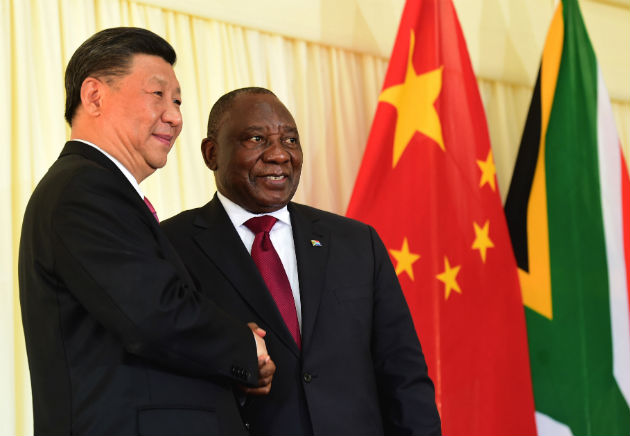China’s debt-trap diplomacy, in which the communist country uses debt as a tool to spread its influence abroad, is well established. China’s mechanism is straightforward! Flood a developing country with so much debt that it is unable to repay it and is compelled to sacrifice a vital asset instead. For a long time, the Communist Party of China has used this method to pillage African countries.
Historically, research has demonstrated that mounting debt has the potential to undermine the sovereignty of African states, owing to the intricacy of corruption and the continent’s recurrent political instability.
For years, China has fostered connections with African countries, providing low-interest loans and budgetary initiatives without the normal human rights issues that accompany Western government offerings.
In a new effort to increase its influence in Africa, Beijing has been building or refurbishing government facilities at its own expense, attempting to bribe various civilian governments in the region.
The benefits that an African leader can derive from a friendly relationship with Beijing are significant inducements to collaborate. According to reports, the Chinese government has made direct cash transfers to various African heads of state or ruling parties. Chinese corporations allegedly have also bribed presidents, key government officials, or their family members. Even non-state-owned enterprises implicated in bribery are so entwined with the Chinese government that their activities are consistent with Beijing’s foreign policy goals.
Ramaphosa- A Chinese stooge?
The Chinese, albeit gradually, are succeeding to impose unrestrained influence in Africa courtesy of leaders like the South African President Cyril Ramaphosa.
According to recent reports, three Chinese companies, two of which are state-owned, have just won most of the lucrative road construction contracts in South Africa.
Domestic bidders have now started to demand an explanation from President Cyril Ramaphosa as to why they were disregarded.
The South African Institution of Civil Engineering (Saice) has written an open letter to President Cyril Ramaphosa questioning the award by the South African National Roads Agency (Sanral) of tenders to joint ventures led by foreign companies, claiming that thousands of local jobs will not materialize as a result.
“We understand that South African tenders usually legislate the use of local materials and labour, requiring that a spend of 30% of the contract is designated to local jobs, and we, therefore, assume that these foreign companies will gain the other 70% of the contract value, up to the amount of R6.65 billion,” the letter read.
The worse part of the scenario is that the news comes after Ramaphosa made lofty promises about developing domestic industry and preventing foreign businesses from exploitation of the country’s resources. Without a doubt, the current project awarded to Chinese firms would have a detrimental effect on employment, job creation, and skill development of South Africans.
Do not be misled; Ramaphosa has previously demonstrated his commitment to China, even at the risk of alienating his own people. The South African government inked several agreements, including memorandums of understanding on investments, totalling $14.7 billion with China a few years ago.
Also Read: Will Zuma unseat Ramaphosa?
Chinese Plans are faltering:
While politicians like Ramaphosa have put South Africa’s economy in danger by partnering with China, African commoners have made it clear they will not allow predatory nations like China to continue its nefarious activities in their nation. African civil society have begun to resist the expanding Chinese influence since they do not benefit as directly from Chinese generosity as their rulers. Citizens’ groups have already succeeded in promoting transparency and accountability in their governments’ dealings with China. African activists were the first to highlight Guangzhou’s pervasive discrimination towards Africans.
Leaders like Ramaphosa must change course and renounce their allegiance to the Chinese as Africans’ suspicions about Beijing intensifying. Otherwise, it would only be a matter of time before the resilient South African populace force the country’s president out of power.
https://www.youtube.com/watch?v=bViukTlMMCw
